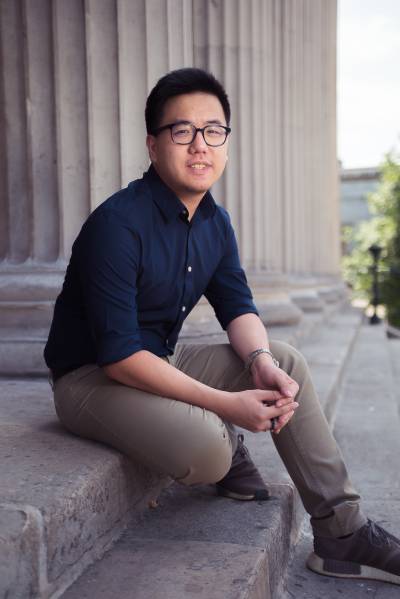Spirit of SLMS Winner (Scientific Excellence & Leadership)
Supathep is a Thai student who completed his PhD in Molecular Microbiology in 2018 at the UCL Eastman Dental Institute, under the supervision of Dr Adam Roberts. He is now working as a postdoctoral researcher in Tromsø, Norway.
Tell us a bit about your research during your time at UCL.
My research project was in the field of antimicrobial resistance, which is currently one of the major global healthcare problems, causing higher morbidity and mortality every year.
I focused on the detection of antimicrobial resistance genes and the mobile genetic elements in the human oral bacteria. I have developed techniques that can be used to detect different types of mobile genetic elements in the human oral cavity. As a result, several antimicrobial resistant and other adaptive genes were identified to be carried by these mobile genetic elements.
I then investigated integrons, a type of mobile genetic element, in more depth and identified a group of genes carried by integrons that can promote other genes in integrons. In order to easily detect these group of genes, I developed the detection system which allows us to directly visualize the bacteria containing these genes on agar plates.
A fundamental understanding of mobile genetic elements is a prerequisite and is urgently required to design strategies that can stop its spread. All of the techniques and constructs that I designed can be used for this purpose and also can be applied to a wide variety of different academic projects.
What have been some of the great milestones and/or achievements for you during your time at UCL?
- Based on the work in my PhD, I have published three manuscripts as a first author and am currently preparing another two manuscripts for submission later in 2018.
- I have attended many scientific symposia, both in Europe and the USA, presenting at the largest microbiology conferences either side of the Atlantic. I was also awarded the prize for best poster at the UCL Eastman Dental Institute Research Away Day in 2014.
- I have participated in several high-profile public engagement events including the Wellcome Trust Screenwriters Event, the Wellcome Trust On Light event, the Bloomsbury Science Festival and Surgeon X, where I explained antimicrobial resistance to guests.
- Based on my scientific output and PhD activities, I was also awarded the prestigious Anglo-Thai Society's Award for Educational Excellence 2016 in the Medical Sciences Category, which recognises the exceptional academic achievements of Thai PhD students in the UK.
What role do you think public engagement of science plays in wider society?
Public engagement of science is very crucial, in my opinion, as it is a way to communicate and enhance an impact of our work in science to society. For example, antimicrobial resistance is not a problem that researchers and clinicians could fix by ourselves alone - it is a problem that every sector of society will have to participate in. With public engagement, we can increase social awareness and understanding about antimicrobial resistance in a way that is easily understandable. We can educate and explain to people why we have to cut down the unnecessary use of antibiotics, as it can reduce the exposure of bacteria to antibiotics and the risk of resistance.
Top 3 places/things to do in London?
- Walking along the River Thames
- Window shopping in Oxford Street
- Enjoying food in the West End (Cupcake Sundae from Lola’s Cupcakes, Tum Lao from Lao Café and Deep Fried Dough Cheung Fun from Gerrard’s Corner)
What would surprise people about you?
I am a big fan of Starbucks and always have a Starbucks coffee every day but I’ve ended up working in Tromsø, Norway - where there is no Starbucks.
 Close
Close


